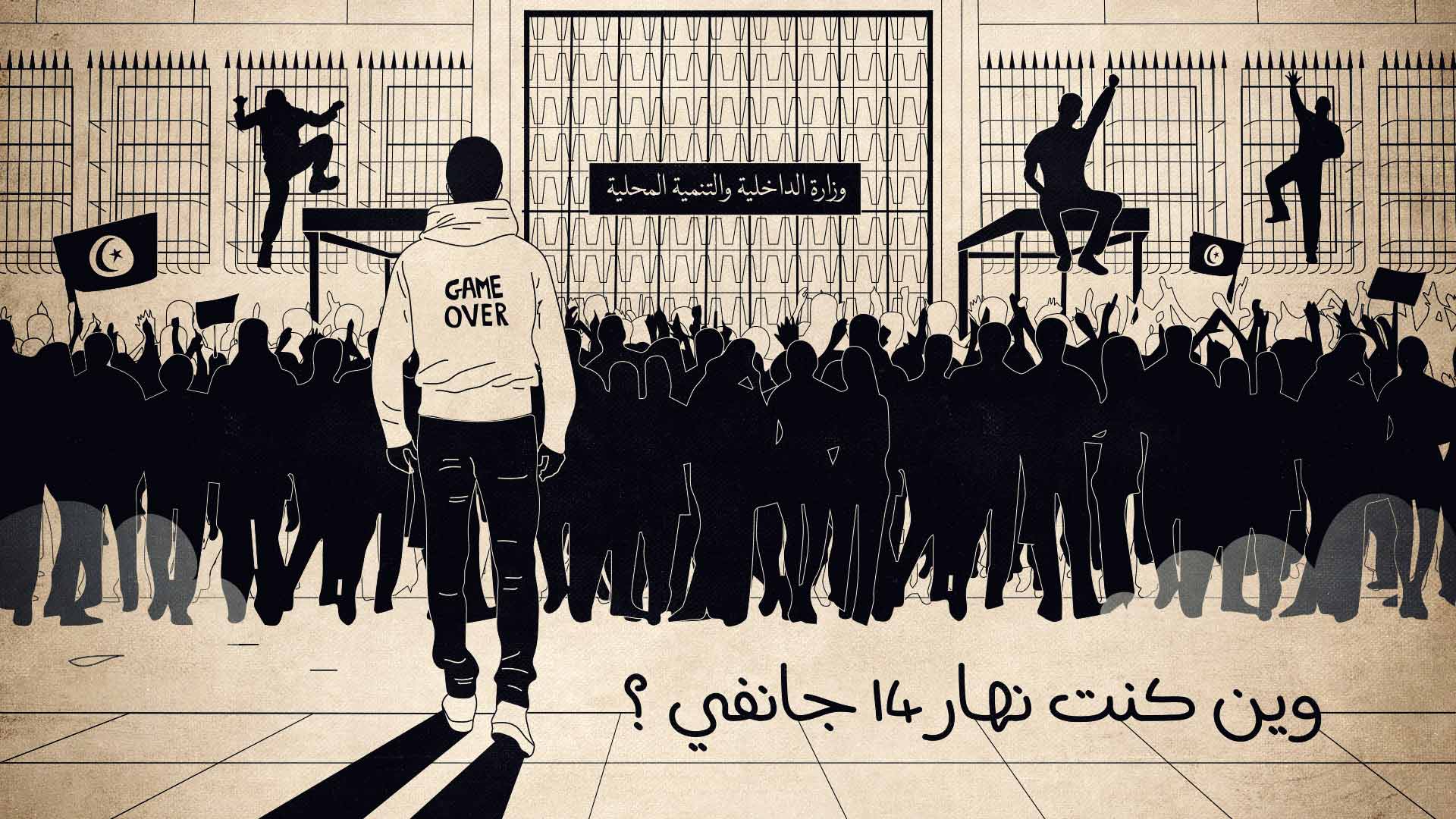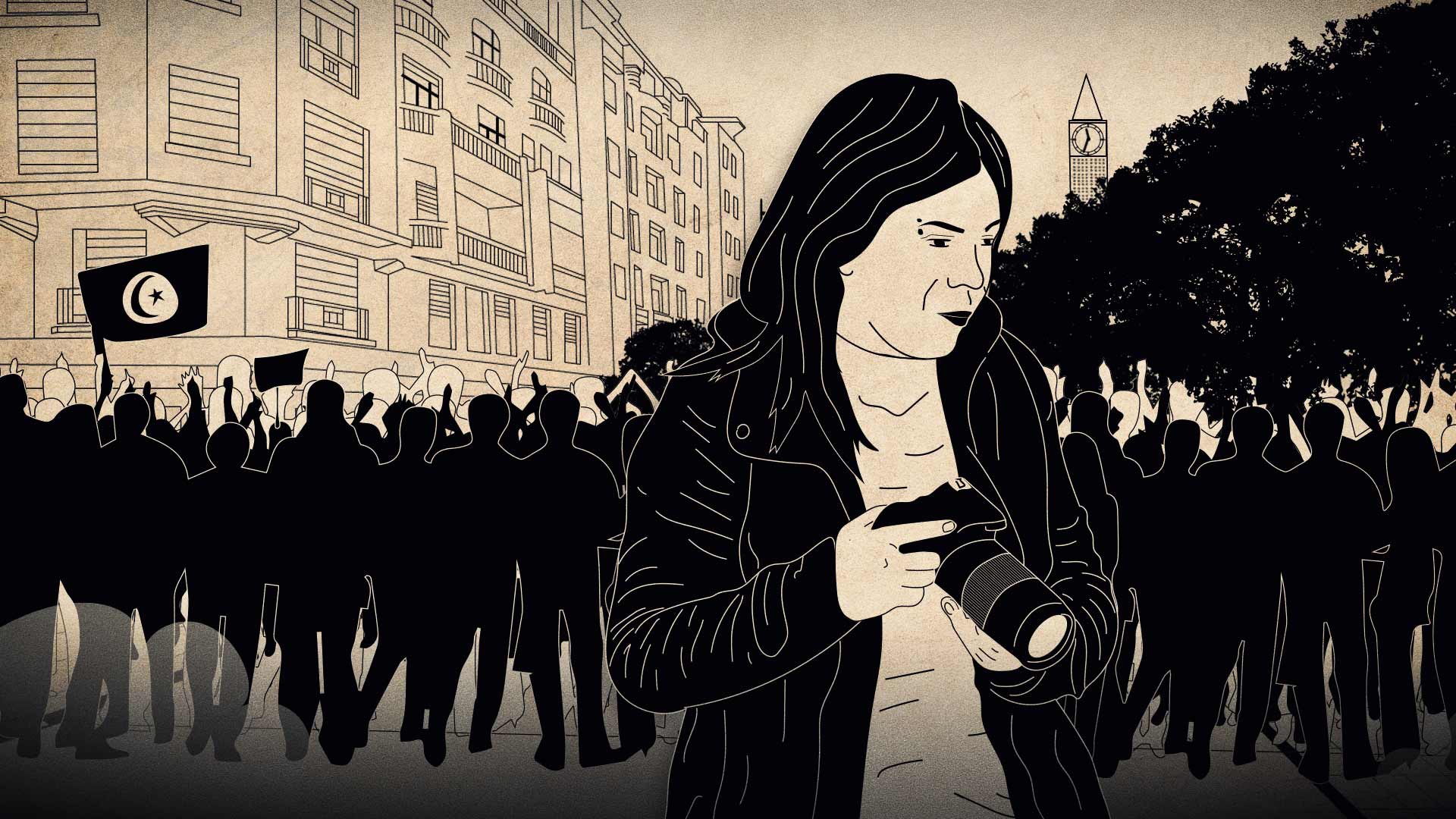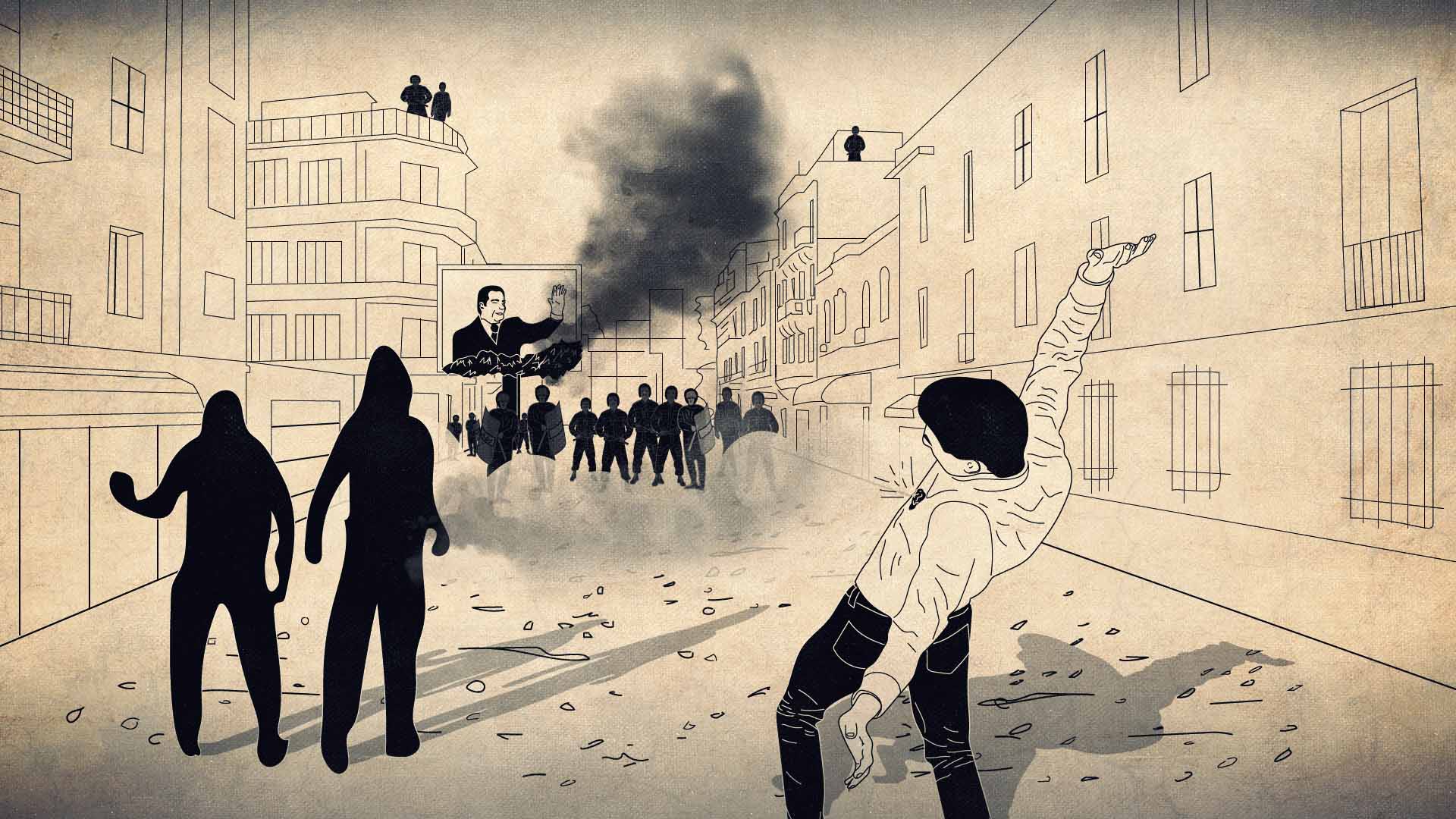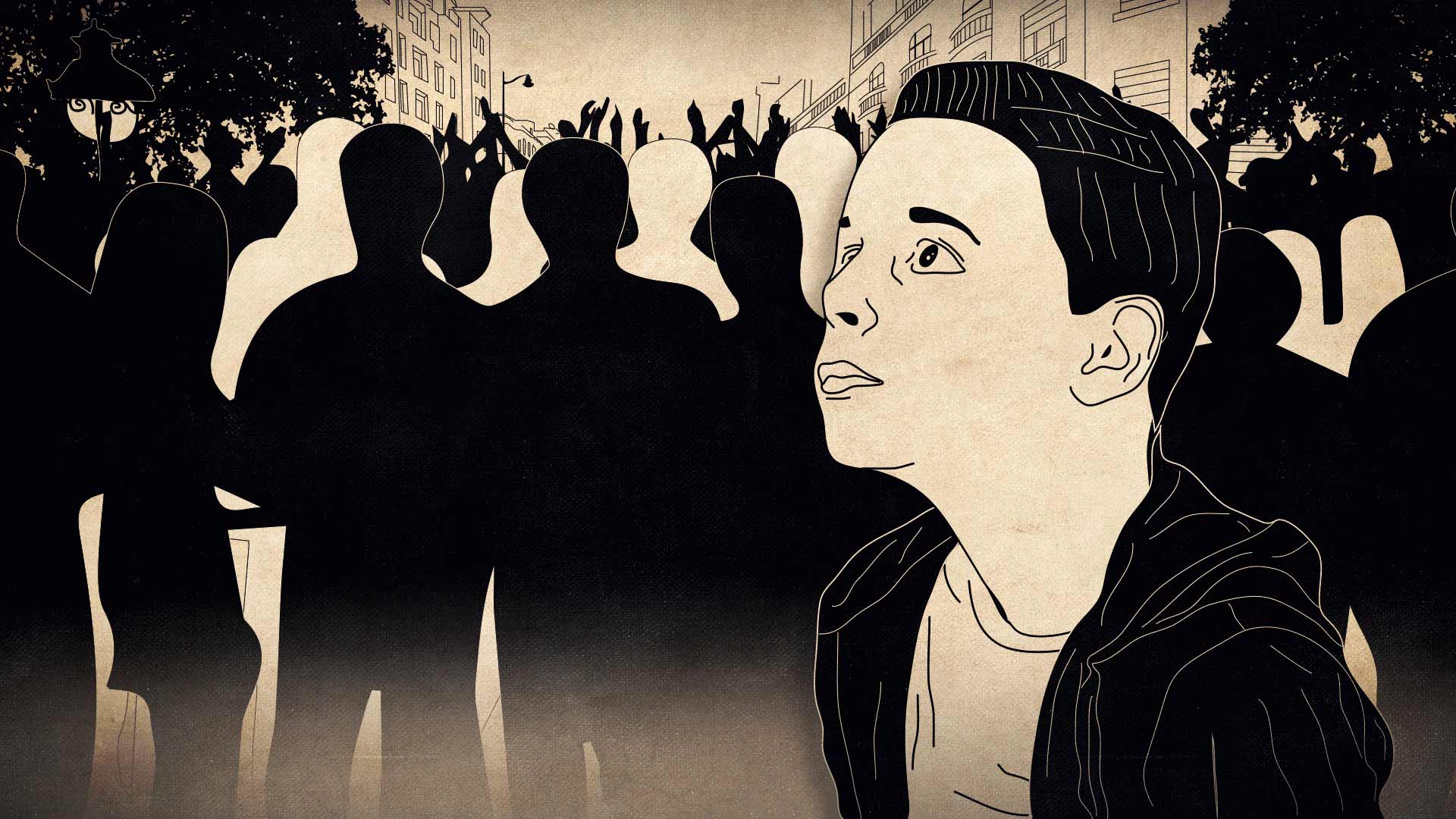| EPISODE 8
The Trojan Horse
Created by
Inkyfada Podcast
Directing
Bochra Triki, Oussema Gaidi
Editorial Board
Monia Ben Hamadi
Recording
Hazar Abidi
Editing, Sound Design & Mixing
Oussema Gaidi
Voice over
Bochra Triki
Subtitles
Yasmin Houamed, Brahim Mzoughi
Illustration
Marwen Ben Mustapha
On January 14, 2011, Haikel Hazgui (or 'Nash' as his friends call him) is forbidden by his uncle to leave the house, as he is worried that his nephew will demonstrate in the city centre.
Nash, pretending to go along with this, escapes through the window to join his girlfriend and the thousands of other demonstrators who came to protest against the ruling government.
There, near the Ministry of the Interior, he is met by familiar faces such as Lina Ben Mhenni. The first part of the demonstration proceeds calmly, as the young student discusses and chants with his fellow demonstrators: "Go away!", "Down with the RCD (Ben Ali's former political party), the tormenter of the nation". Nash is then suddenly struck by the image of a man releasing a bird from its cage.
As tear gas is launched and the crowd disperses, Nash finds himself fleeing the police violence all alone.
He recounts the smaller, and largely "forgotten battles", like the one that took place on Jean Jaurès Avenue, a few dozen metres from Habib Bourguiba Avenue. There, he witnesses unimaginable events: a demonstrator repurposing an empty police van as a roadblock to protect the demonstrators from the police. J
ean Jaurès Avenue turned into a "free zone". On the way back to Mégrine, Nash hears Al-Jazeera reporting about the president's escape. It is complete euphoria.
He also recounts the following days spent in his home town of Jebeniana, where he experienced participatory democracy and self-governance for the first time, and which came to fill the political void after the fall of the ruling power.
Where were you on January 14th ?
Latest episodes
| EPISODE 13
In Lina's Footsteps | Special Episode
| EPISODE 12
A Bullet Straight to the Heart
| EPISODE 11
A Child's Gaze
ABOUT
Inkyfada Podcast is the first platform entirely dedicated to original Tunisian podcasts, and was conceived by Inkyfada media in collaboration with the in-house research and development laboratory, InkyLab. Inkyfada joined the global podcast boom in 2017, when the team produced the first Tunisian audio documentary, diving deep into the belly of the El Kamour struggle taking place in the desert. Since then, Inkyfada Podcast has produced a wide variety of documentaries, investigations, and podcast series, as well as articles accompanied by music; covering a multitude of contemporary issues in order to offer an immersive and alternative podcast experience. Whilst exclusively offering audio content, the Inkyfada Podcast team upholds the same core values and principles of inkyfada.com, and is committed to producing high quality content though a dynamic and meticulous production process. In addition to the permanent team, Inkyfada podcast works closely with various journalists, artists, illustrators, musicians and other content creators in order to diversify the platform and support artistic creativity. These podcasts differ from traditional radiophonic content in that the applied production and editing process is more akin to cinematographic techniques, in addition to being web-based, downloadable and accessible on demand. Additionally, Inkyfada Podcast uniquely offers subtitles in French, Arabic and English for all audio content, the majority of which is recorded in Tunisian or in the preferred language of the speaker in question.







